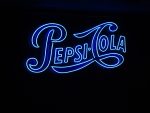Coca-Cola seems to be linked to some of the most terrible news that surfaced in 2019. From pollution, to animal cruelty, to abortion bans, the company and its money have drastically affected the world as we know it. Here are four of the most pertinent cases of corruption that Coca-Cola has been involved with recently.
1. Based on global cleanups, Coca-Cola is listed as one of the main contributors to plastic pollution worldwide.
Brand audits done in 2018 on a survey of over 200,000 pieces of plastic worldwide show that Coca-Cola, along with Nestle and PepsiCo, were the top plastic polluters in the world. Coca-Cola, however, was deemed the most prevalent, with bottles found in 40 out of 42 countries surveyed, making up about 15% of the total waste collected by the auditors.
Though the company stated in 2018 that they are committed to eliminating waste from the ocean (with a pledge to have 50% of their products made from recycled material), they have taken very few steps toward achieving this. In March of 2019, Coca-Cola revealed that they use over 3 million tons of plastic each year — roughly the size of 15,000 blue whales.
2. Their milk brand, Fairlife, has been overseeing extreme animal cruelty of dairy cows.
In June of 2019, videos obtained through an undercover investigation of Fair Oaks Farm in Indiana, Fairlife’s main supplier, revealed the absolute horrific abuse of dairy cows and their offspring, and are almost unbearable to watch. The investigation, done by the group Animal Recovery Mission, also revealed that male calves from Fair Oaks Farm are transported to veal farms, despite claiming the opposite.
After the videos were released, Fairlife suspended deliveries from the farm and supposedly increased audits at their other dairy suppliers. Though Coca-Cola claims they were not aware of the abuse, they have had complete control over Fairlife and its regulations, including animal welfare. And, even if the company had no idea about the conditions of the farm, that alone counts as animal neglect to the grossest degree imaginable.
3. They have donated over $40k to politicians supporting abortion restrictions.
In 2019, when governors of states like Mississippi and Georgia signed some of the most restrictive abortion bans known to the 21st century, many were in awe that the bills were able to gain such traction within state legislatures.
The reason? The politicians advocating for or enacting the bills are backed by some of the most prominent companies in America. The largest donors are AT&T, Eli Lilly, Walmart, Pfizer and, you guessed it, Coca-Cola — all this, even though each of these companies brag about their gender equality policies and accomplishments (see this statement from James Quincey, the CEO of Coca-Cola).
Here is a breakdown of the $40,800 Coca-Cola distributed throughout five states:
— $10,000 to Alabama Governor Kay Ivey
— $2,500 to Alabama Lt. Governor Will Ainsworth
— $2,500 to Alabama Senate Majority Leader Greg Reed
— $6,600 to Georgia Governor Brian Kemp
— $2,600 to Georgia Lt. Governor Geoff Duncan
— $2,600 to Georgia House Speaker David Ralston
— $500 to Georgia Senate Majority Leader Mike Dugan
— $500 to Kentucky Speaker David Osborne
— $500 to Kentucky Senate President Robert Stivers
— $2,500 to Kentucky Senate Majority Leader Damon Thayer
— $6,500 to Mississippi House Speaker Philip Gunn
— $2,500 to Ohio Governor Mike DeWine
— $1,000 to Ohio Senate President Larry Obhof
It is important to note that, though many abortion bans were signed, none have gone into effect — in fact, many have been temporarily blocked by federal judges, as lawsuits have piled up on top of the bills.
No matter what your personal beliefs are surrounding abortion, it should be extremely concerning that corporate dollars are being used to not only fund campaigns, but to sway very real and pertinent healthcare issues into the hands of the wrong people.
4. They mislead the general public about the causes of food-related diseases.
For years, Coca-Cola has backed studies that regard lack of exercise as the leading cause in food-related diseases such as obesity, diabetes and heart disease. Recently, they have started financially supporting the nonprofit Global Energy Balance Network, whose vice president claims that there is “really virtually no compelling evidence” that eating too much and eating poorly leads to these diseases.
Clearly, this is false, as there is a direct and pronounced connection between access to healthy food and nutrition education and these diseases. Coca-Cola is using this argument to deflect criticism about the harmful effects of their sugary drinks — and has been for a while — due to a steady decline of the consumption of full-calorie sodas, which has decreased 25% over the last two decades.
It would be easy to disregard this shady behavior as just a futile effort to salvage their company if it weren’t for the pockets Coca-Cola stuffs with money in order to protect their image. Coca-Cola is listed as an approved continuing education provider by the Academy of Nutrition and Dietetics (AND) — the nation’s largest association of nutritional professionals.
The messages Coca-Cola teaches include: sugar is not harmful to children; aspartame is completely safe; and the Institute of Medicine is too restrictive in its school nutrition standards (which, if you’ve eaten, smelled or even laid eyes upon a school lunch recently, you know it’s anything but appetizing and nutritious).
With these messages approved under the AND, it’s easy to see why those who lack a proper education on nutrition would not be so quick to link unhealthy foods and beverages with the most common, costly and preventable diseases that are widespread throughout the U.S.
At this point, if you’re thinking that it might be best for you to stop supporting Coca-Cola so that they, in turn, stop supporting all of this, here is a page that lists all of the brands they own, so you can eliminate their products from your daily routine.
















